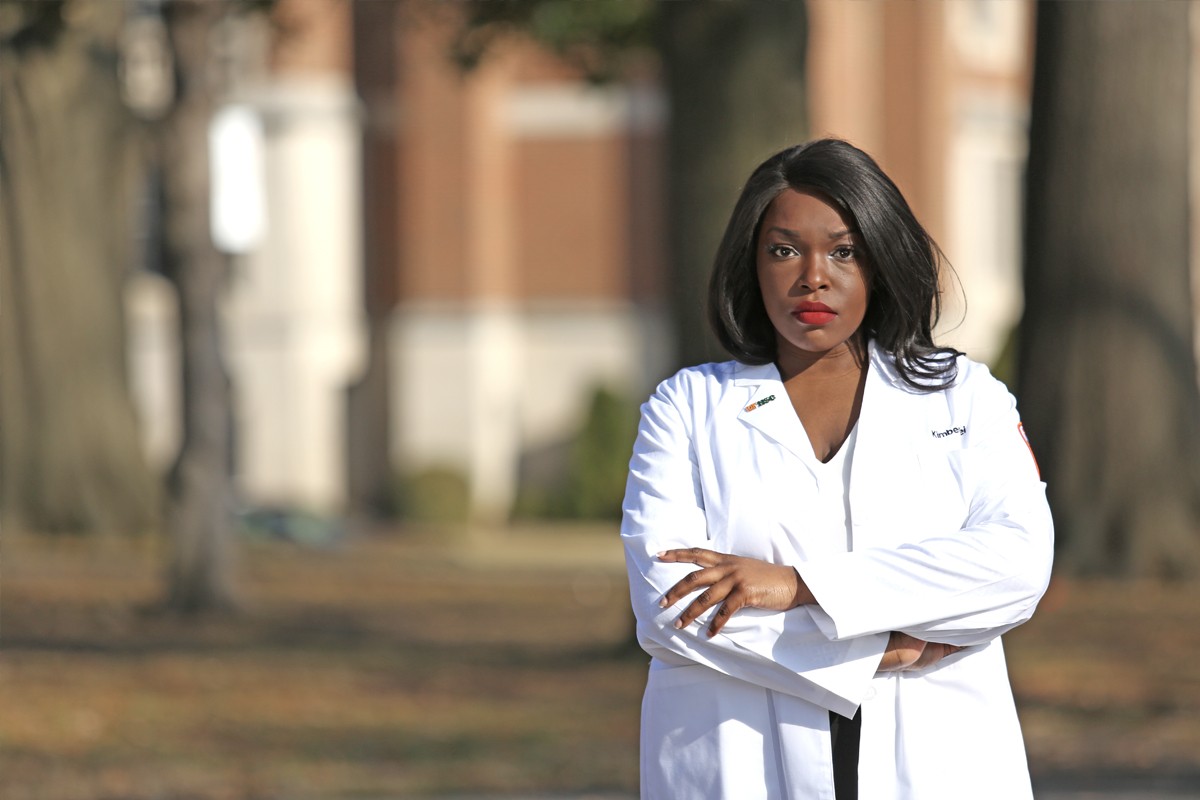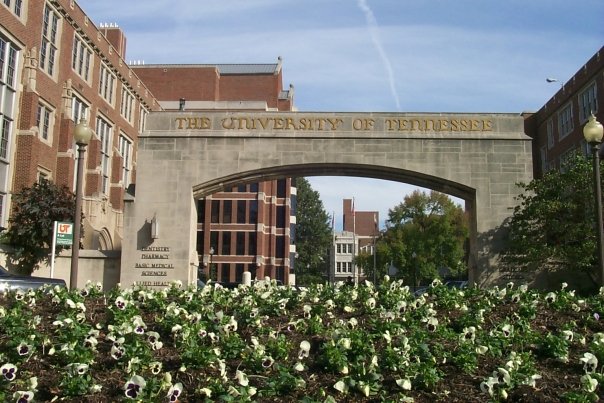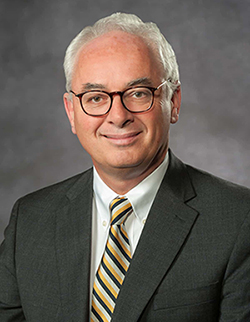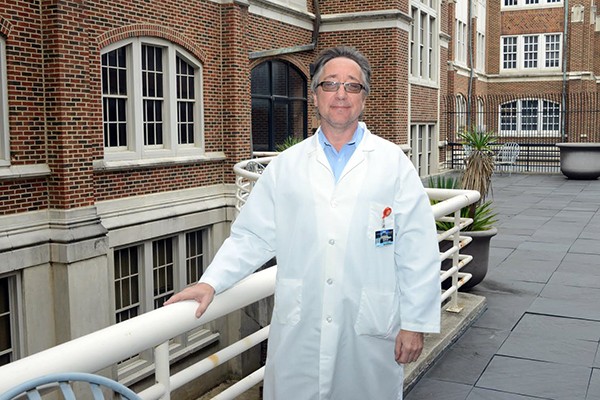Memphis children need help.
The city is reminded of that fact each year when The Urban Child Institute [TUCI] publishes its annual report called, “The State of Children In Memphis and Shelby County.” It says that children here, from birth to age three, are some of the most vulnerable to poverty, poor health care, delayed development in their education, and early death. The report brims with grim warnings of what might happen to the children if someone doesn’t do something soon.
And yet, TUCI itself has the means to affect some of the changes it so specifically defines each year. The tiny Memphis nonprofit organization sits on a gold mine — more than $148 million in investment assets as of 2013. (Data for 2014 is not yet available to the public.) But some criticize the organization, saying instead of spending this money on direct help for children, TUCI stands on the sidelines, letting its sizeable investment portfolio grow, year after year.
TUCI president and CEO Gene Cashman disagrees. He says the organization has donated more than $90 million to Memphis nonprofits in the organization’s 20-year history. He says TUCI is not set up to be a grant-giving foundation, which have federal mandates on the amounts they have to give away each year.
“I think in context of who we are and what we do, our contributions to the community over the last 20 years would indicate we have and do provide support for children’s endeavors, both information and knowledge, as well as support to organizations that are also endeavoring to support or advance those same children,” Cashman adds.
 Toby Sells
Toby Sells
Source TUCI tax documents
TUCI used to grant money to an array of Mid-South nonprofits that focused on directly helping children, organizations as varied as the Girl Scouts, Youth Villages, and the YMCA. But in recent years, TUCI has turned the money spigot way down and narrowed its grant focus. The organization cut its annual grant-giving in half from 2002 to 2013, from about $4 million annually to about $2 million, according to federal tax documents.
TUCI now gives money to organizations that would appear to only help children indirectly, organizations that research children’s issues or raise awareness about them. In 2013, TUCI grants didn’t go to protect children, heal them, teach them to swim, or fill their bellies. Most of TUCI’s external grants in 2013 were given to places like the University of Memphis, University of Tennessee Health Science Center [UTHSC], and the Neighborhood Christian Center. (TUCI’s board is laden with people from these institutions. More on that later.)
In 2013, TUCI also gave money to organizations that don’t seem aimed at aiding urban children at all, organizations such as Victorian Village, the New Memphis Institute (formerly Memphis Leadership Academy), and the Women’s Foundation for a Greater Memphis. Cashman says these groups help TUCI spread its message to multiple audiences across Memphis.
TUCI has always been a relatively large supporter of Le Bonheur Children’s Hospital, the organization that gave birth to the institute. In 2005, TUCI gave the hospital $25 million to build its new hospital on Poplar. Before that, TUCI gave Le Bonheur money each year to support its operations. Cashman estimates that TUCI has given the hospital $50 million in the last 20 years.
 Toby Sells
Toby Sells
Source TUCI tax documents
According to tax records, however, TUCI didn’t give the hospital any money in 2012 or 2013.
Much of the criticism leveled at TUCI comes from the fact that Cashman, its CEO, makes a high six-figure compensation package ($633,529 in 2013), an exorbitant sum, according to state and national compensation reports, for managing an organization with just 11 employees, including Cashman. His 2013 compensation package was nearly 10 percent of TUCI’s total expenses, including grants dispensed.
For years, these facts — the huge and growing investment fund, the dwindling grant funds allocated, and Cashman’s big payout — have been whispered about at cocktail parties and have raised eyebrows in board rooms all over Memphis. Critics say that Memphis children need help and the time to act — the time for TUCI to spread much more of that money around — is now, right now.
“[The Urban Child Institute] has established a thesis over the years that we need to get to kids at an extraordinarily early age. We agree,” says Andy Cates, president of RVC Outdoor Destinations. “We have an extraordinarily deep need in this city and have some incredibly strong nonprofits, and I believe those funds would be better allocated to action at this point.”
The History
Cashman came to Memphis in 1977. He was 35 years old, recruited away from a Washington, D.C., hospital to run Le Bonheur. He helmed the hospital until it was purchased and merged into the Methodist Healthcare system in 1995.
Beginning in 1983, Cashman was also president and CEO of an organization called Le Bonheur Health Systems [LHS], which had a for-profit holding company that built successful subsidiaries focused on home health, medical equipment, infusion therapy, and specialty pharmacy products. In 1995, LHS announced it would sell its health-care businesses, all of them. Cashman said the sale yielded about $80 million to $90 million.
LHS kept its name but got out of the direct health-care business. It became an organization focused on children’s health issues. LHS officials said that the money from the sell-off was to be used “to fund and support innovative child health initiatives in Memphis and the Mid-South,” according to an employee newsletter published at the time.
If the mission and the organization’s leader seem familiar, they should. Le Bonheur Health Systems became The Urban Child Institute in 2004, but the core financial nest egg is still the same.
TUCI has sat on most of that investment money ever since, watching it grow to its current level of nearly $150 million. Local nonprofit insiders point to the fact that that money was made by a nonprofit entity, supported by donations from corporations, community groups, and well-meaning citizens. Nonprofits, they maintain are beholden to the public.
Cashman says the organization started with about $90 million, has given away about $90 million, and now sits on investment funds worth about $150 million. That, he says, is simply being “good stewards of those funds.”
So, why should anyone in the public or nonprofit sector complain about what TUCI does (or does not do) with its money?
“Nonprofits are public organizations that belong to the public at large,” says Nancy McGee, executive director of the Memphis-based Alliance for Nonprofit Excellence. “Nonprofits are given tax exemption, nonprofit status, and they are able to deduct their charitable contributions. These are privileges that are granted by our publicly elected representatives to nonprofits. As such, that makes one of their stakeholders the public at large, and so [nonprofits are] accountable to the public.”
Nonprofits enjoy financial and tax benefits because the government — we, the people — allows them to. In exchange, they are supposed to make their communities better places and address some of the issues that government can’t address or private business won’t address.
TUCI Board Responds
“Well, that’s not right.”
That was the response from TUCI board chairman Dr. Hershel “Pat” Wall, a physician and former chancellor of UTHSC and now a special assistant to the president of the entire UT system, when told that sources criticized TUCI for sitting on money that could help Memphis children.
Wall says he’s known Cashman since he came to Memphis in 1977 and that he was the pediatrician to Cashman’s children. Wall says TUCI is “very much involved in the community” and that Cashman is a “highly ethical, committed individual.” UTHSC has been supported by TUCI grants at least as far back as 2002. In 2013, UTHSC was TUCI’s largest grantee, getting more than $1 million, which was nearly half of all grants given by TUCI that year.
As for TUCI’s finances, Wall says, “I don’t see the books,” and says he was only “vaguely aware of how much money they’ve got and how much they give out.” He says he depends on the financial savvy of other members of the board to review Cashman’s “very open and transparent management of the money.”
“I can imagine what folks might be thinking about, that Gene is making a lot of money and he’s not spending as much as he ought to be in the community,” Wall says. “But I don’t think that’s the case.”
Cyril Chang is an economics professor at the University of Memphis and director of Methodist Le Bonheur Center for Healthcare Economics at the U of M. He’s also a long-time TUCI board member. When asked what he thought of the way TUCI spends its money, Chang is quick to point out that he serves on the board’s investment committee, and doesn’t direct the outflow of funds.
“We spend our money on very meaningful projects,” Chang says. “We support the mission of getting the community to pay attention to — and become more aware — about brain development in the first three years. That’s our mission that we have been pursuing, so I’m very comfortable with pursuing that mission.” But Chang says he can understand criticism on how TUCI spends its money.
“Different organizations contribute to the welfare of children in different ways,” Chang says. “We have a lot of respect for how other institutions accomplish their missions and their ways, and we are comfortable with our way. We’re not saying our way is the best way, but we have our way of accomplishing our mission.”
Chang’s Center for Healthcare Economics was created in part by a grant from LHS, TUCI’s predecessor, in 2003.
Meri Armour is the president and CEO of Le Bonheur Hospital and is a long-time TUCI board member. TUCI grant funds to her hospital dropped to zero after the group paid its $25 million commitment for the new hospital building. Armour says, though, that Le Bonheur has requested (but not received) funds from TUCI since then.
“I think we’d all be well served if The Urban Child Institute saw fit to address some of these issues through more partnerships in Memphis,” Armour says. “That would be something akin to what the [Plough Foundation] does, and the [Assisi Foundation of Memphis] does, and the [Pyramid Peak Foundation] does. They really try to use their endowments to help worthy causes in Memphis.”
Le Bonheur, she says, is now focused on “problems that really are unique to Memphis children,” like asthma, childhood obesity, teen motherhood, and infant mortality. With that, she says the goals of Le Bonheur and TUCI are “clearly aligned.” Armour notes that TUCI’s bylaws commit the organization to promoting the health of Mid-South children through education and scientific research. “So, I guess my answer is that I’d kind of like to see them do that.
“The more I think that community philanthropy in Memphis can come together and support that, I think the better it’s going to be for the kids,” Armour says. But for now, TUCI’s huge investment fund is largely on the sidelines.
Cashman’s Salary
Another long-standing criticism of TUCI is the paycheck and benefits package of Cashman, its president and CEO. In 2011, the package was worth $444,342 and was 6.4 percent of TUCI’s total expenses. In 2012, that figure skyrocketed to $778,519 and was 12.5 percent of TUCI’s total expenses. It fell modestly in 2013 to $633,529, though it was still nearly 10 percent of TUCI’s total expenses.
Cashman says his compensation is vetted and approved by TUCI’s administrative board, which seeks help to determine the figure from Mercer, a national business consultant. He says the groups arrive at the figures based on comparative analysis and performance measures such as success in strategic planning initiatives, progress with data studies, and the annual data book. Cashman contends he does not sit in on the meetings that determine his salary. When asked if he was aware of the criticism about his compensation, Cashman replies, “Yeah, but I don’t respond to that.”
To some, a person’s paycheck is private, a no-no topic, up there with religion and politics. So, why is Cashman’s salary public and why should anyone outside TUCI care? Again, nonprofits are publicly supported, so pay packages on most nonprofit leaders are public information. Even though TUCI does not receive much in the way of outside donations, Cashman’s salary is publicly supported by way of its nonprofit status. That’s why the public has a right to care.
“The public, which supports the nonprofit and uses its services, is interested in knowing how their charitable donations are being used and what compensation levels are being paid.” This is according to “A Guidebook for Tennessee Nonprofits,” a publication issued by the offices of the Tennessee attorney general and the Tennessee secretary of state, the two state agencies charged with nonprofit oversight.
The Internal Revenue Service gives nonprofit board members wide latitude to determine compensation, formally stating that it should be “reasonable and not excessive.” But under federal law, board members who “knowingly approve excessive compensation and benefits for certain officers could be subject to penalties,” according to the Tennessee guidebook for nonprofits.
The National Council of Nonprofits suggests nonprofits hire an outside entity to conduct a comparison study and document the process, including the disposition of the board’s decision to approve the compensation. TUCI has largely followed this process, according to tax documents.
Armour says TUCI’s compensation committee makes this decision and is presented as a recommendation to the full board. But the compensation committee recommendation “has never specifically specified what [Cashman’s compensation] is. It has always been something that has not been really a debate question, I guess. I can’t ever remember being on the board and actually voting on his salary,” Armour says.
Chang shied from the question at first and stated he wasn’t the chairman of the compensation committee. When pushed to answer why Cashman deserves his salary, he says, “He’s a very, very experienced business executive with many, many years of experience. He knows the health-care industry and also community services.”
Compensation Comparison
So, does TUCI pay Cashman too much money?
Most nonprofits are unique, and that makes for a tough apples-to-apples comparison. This is especially true for TUCI. It is a research institution, but it’s not connected to a government or academic organization like U of M or UTHSC. It does focus on children’s health research, but it’s not clinical or laboratory research such as what is done at St. Jude Children’s Research Hospital.
TUCI is even more specialized, as it is especially focused on children’s health from birth to three years old. With all of this, it is fair to say that no one in Memphis or the Mid-South does specifically what TUCI does.
So, how should such an organization be measured? The IRS breaks up the nonprofit world into groups and subgroups in much the same way science categorizes the animal kingdom. On its latest tax return, TUCI self-identified as a community health system. The categorization is probably out of date, a lingering vestige of its former self as an owner of a hospital and clinics. But since it’s the way TUCI still identifies itself to the IRS, we’ll have to go with that.
Other Memphis institutions using the same IRS designation include Baptist Memorial Health Care Corporation, Methodist Le Bonheur Healthcare, and Christ Community Health Services. These are large, complex organizations that deal daily in the health-care industry, one of the most complex in the country. This, again, makes the comparison a difficult one. One way to do it is to compare CEO salaries as seen through the scale of the organization and the number of employees.
In 2012, Baptist paid its former CEO, Stephen Reynolds, over $3 million for overseeing a system that employed more than 8,500. In 2012, Methodist paid its CEO, Gary Shorb, more than $2 million to manage a system that employed more than 10,500. In 2013, Christ Community paid its then-CEO Richard Donlon $189,477 to direct more than 400 employees.
In 2013, TUCI paid Cashman more than $630,000 to oversee 11 employees.
Using this comparison, Reynolds got $353 per employee, Shorb got $190, and Donlon got $473. In one year, Cashman got $57,545 per employee at TUCI, including himself.
In the July 2015 issue of Memphis magazine, reporter John Branston compiled a report on the city’s six largest private nonprofit foundations. Among that group’s CEOs, Cashman’s annual compensation was the highest. Thomas Marino at the Poplar Foundation made $375,000 in 2013. James Boyd at the Pyramid Peak Foundation made $302,000. Teresa Sloyan at the Hyde Family Foundations made $289,000. Cashman’s salary of $633,300 was nearly twice as high as most of his nonprofit peers.
The average salary of the CEO of a Memphis health organization that has annual revenues of more than $5 million is $571,483, according to the 2014 Tennessee nonprofit compensation survey, taken from a consortium of the state’s nonprofit advocacy groups. Nationally, the nonprofit watchdog group Charity Navigator said the median income for leaders of comparably-sized organizations as TUCI (with expenses between $3.5 million and $13.5 million) was $148,659 in 2012.
Board Connections
Federal law mandates that nonprofits list people involved with it that may pose a conflict of interest. On the tax forms they use, it’s called “Business Transactions Involving Interested Persons,” and TUCI has quite a list of “interested persons.”
In 2013, the list included Wall, TUCI’s chairman, who also works at UTHSC, which gets money from TUCI, Chang, and Armour. The list also included Stanley Hyland, a researcher at U of M, which receives funds from TUCI. James Witherington, of the Neighborhood Christian Center, is on the TUCI board, and TUCI gave his group more than $630,000 in 2013. Frederick Palmer, a UTHSC doctor, served on the TUCI board in 2013.
Chang says the board is a mixture of “community folks and so forth,” and defends the role of U of M and UTHSC — two of the biggest organizations that TUCI funds — noting that their members are present but that they don’t dominate the TUCI board. Armour notes that the seeming conflict of interest on the TUCI board has “been a point of some debate in the community, that the members of the board might have some vested interest.” But she says the nominations are made and the proper conflict-of-interest statements are filed.
Cashman says TUCI is first and foremost a support organization and that it is prudent and legal for supported agencies to have a seat at the board. But, he says, members from those organizations must recuse themselves of any vote related specifically to their organizations.
Data, Cashman says, is the cornerstone of what TUCI does, and, he adds, data was the target focus from the very beginning. Cashman says getting that data has determined who TUCI has funded and that data has been assembled for “broad community consumption.” He says he believes TUCI’s ongoing study called “Conditions Affecting Neurocognitive Development and Learning in Early childhood,” or CANDLE, will directly change the lives of Memphis children.
“It is going to reveal, we believe, some findings that will be important interventions, in the environmental sense, of where children are living, their educations, their long-term health well-being, and crime.”
The multi-million-dollar question remains for TUCI’s critics, however: Will the organization put more of its money toward addressing the problems of the urban children it researches?






 Kimberly Diei UTHSC Student Courtesy of FIRE
Kimberly Diei UTHSC Student Courtesy of FIRE  Kimberly Diei UTHSC Student Courtesy of FIRE
Kimberly Diei UTHSC Student Courtesy of FIRE  St. Jude Children’s Research Hospital
St. Jude Children’s Research Hospital  St. Jude Children’s Research Hospital
St. Jude Children’s Research Hospital 
 UTHSC
UTHSC 

 University of Tennessee Health Science Center
University of Tennessee Health Science Center  Toby Sells
Toby Sells  Toby Sells
Toby Sells